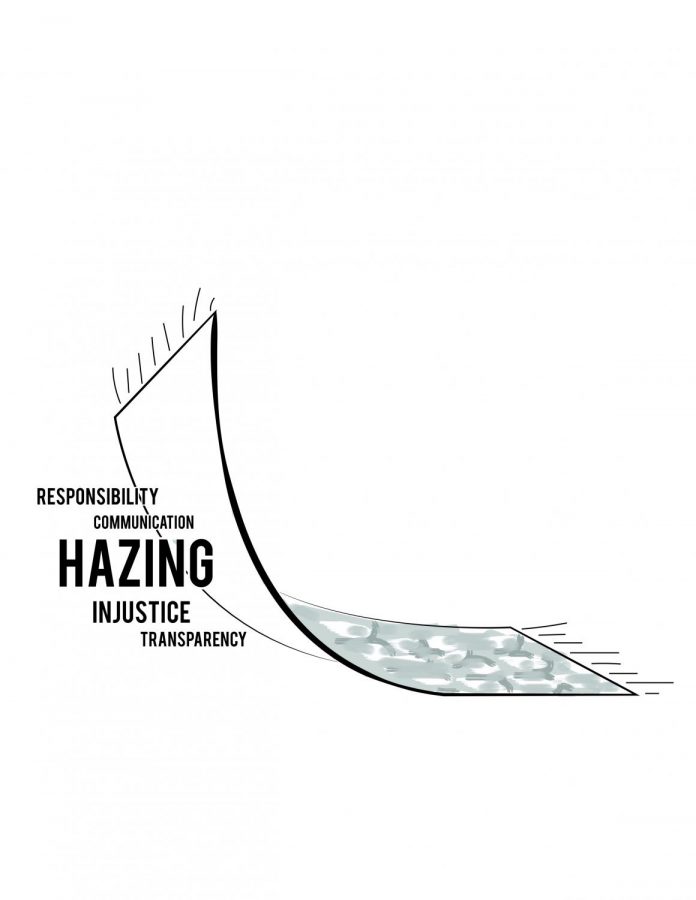EDITORIAL: Acceptance of hazing is intolerable
April 9, 2015
The issue: The WKU swim team has directly violated university policies on hazing, sexual harassment and sexual assault, according to a university investigation.
Our stance: While hazing doesn’t make any campus seem appealing, it’s important to face this issue with as much force as any other in order to prevent other victims.
Hazing is defined by the student code of conduct as “any action, physical abuse or creation of a situation which recklessly or intentionally endangers the mental or physical health of a participant by any person.”
Leading with a definition is usually a sign of weak writing, but we thought it was appropriate to include a reminder, because it seems as if some have forgotten.
It was three months ago that freshman Collin Craig filed an e-mail complaint alleging that members of the team forced him to drink alcohol, assaulted him and hazed him multiple times throughout the fall 2014 semester off-campus. To be clear, this would fall under the “physical abuse” and “physical health endangerment” categories.
Throughout this saga, more than a few things have been troubling. First and foremost, however, is the severity of the incidents and the consequences that have yet to be incurred.
According to the Title IX report, Head Coach Bruce Marchionda knew about the hazing and sexual harassment culture on the swim team based on an e-mail he received from a former swimmer in spring 2012.
As the report notes of other incidents on the swim team, “Discipline, when it was effectuated, was often inconsistent, and often handled during the fall semesters when major competitions and championships were not at stake.”
The lack of acknowledgment and action is unacceptable. When the leaders we look to turn a blind eye to potentially damaging complaints, the hazing culture is only perpetuated. This apathetic perspective embraces the hazing culture as a rite of passage for college students, harmless in structure and effect.
This is a fallacy.
Not only are hostile environments created, but also territories of shame. It’s used as a tool for mental manipulation, reinforcing fear and prolonging an atmosphere that isn’t conducive to education.
While this campus has seen hazing from Greek organizations, hazing isn’t exclusive to them. Hazing can happen in more environments around campus — and it is essential that light is shed on all of these situations. We demand that these issues are not ignored.
It is imperative that uniform and severe punishments are handed out accordingly to every participant in the hazing. Whether it’s students who were actually involved in the incidents, or administrators who had the knowledge but didn’t speak up, no one should be let off the hook here.
Hazing is intolerable. If you or anyone else you know has been hazed, reach out to someone. Reach out to judicial affairs, WKU Police or Title IX coordinator Huda Melky.













![Students cheer for Senator at Large Jaden Marshall after being announced as the Intercultural Student Engagement Center Senator for the 24th Senate on Wednesday, April 17 in the Senate Chamber in DSU. Ive done everything in my power, Ive said it 100 times, to be for the students, Marshall said. So, not only to win, but to hear that reaction for me by the other students is just something that shows people actually care about me [and] really support me.](https://wkuherald.com/wp-content/uploads/2024/04/jadenmarshall-1200x844.jpg)











